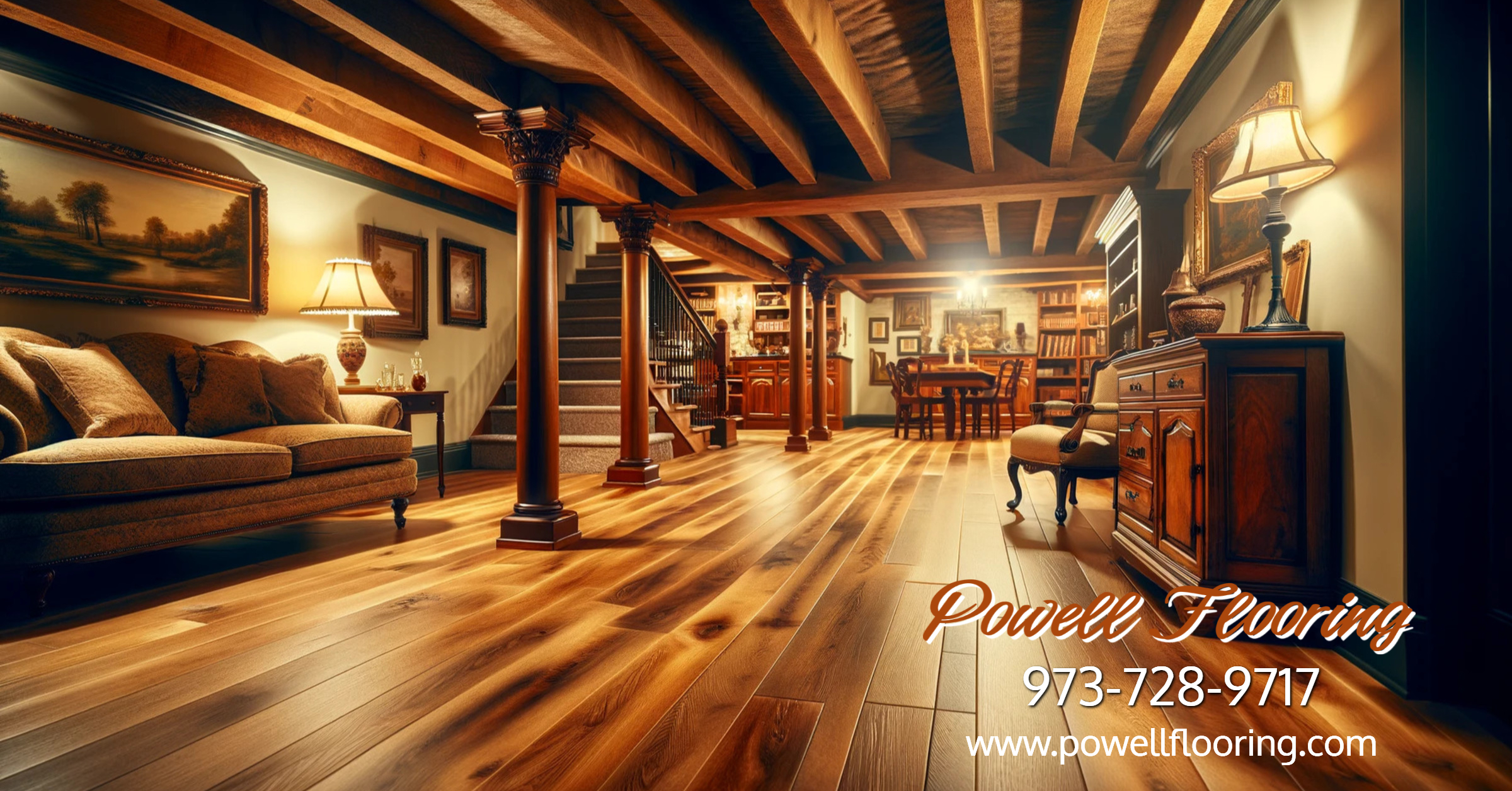
Brief Summary:
For basement flooring, solid hardwood isn’t ideal due to moisture and temperature issues. Engineered hardwood and waterproof luxury vinyl are better choices. Engineered hardwood resists moisture changes well, while luxury vinyl is durable and waterproof, both offering stylish alternatives to hardwood. Carpeting is not recommended due to moisture and allergen concerns.
Basements offer unique challenges and opportunities when it comes to flooring. While solid hardwood floors boast elegance and a timeless appeal, they may not always be the best fit for below-ground spaces. In this article, we’ll explore why solid hardwood might not be ideal for your basement, the advantages of engineered hardwood in such environments, and why waterproof luxury vinyl flooring could be a savvy alternative.
The Challenge with Solid Hardwood in Basements
Solid hardwood floors are a classic choice for many homes. However, when it comes to basements, they can present significant challenges:
- Moisture Sensitivity: Basements are prone to higher humidity and potential water exposure. Solid hardwood is particularly sensitive to moisture, which can cause warping, swelling, or even mold growth.
- Concrete Subfloors: Most basements have concrete subfloors. Solid hardwood requires a stable, moisture-free base, which concrete often cannot provide without extensive and costly modifications.
- Temperature Fluctuations: Basements often have less stable temperatures, leading to expansion and contraction of solid wood, potentially damaging the flooring over time.
Engineered Hardwood: A Feasible Solution
Engineered hardwood flooring offers a practical alternative for basement installations. Here’s why:
- Structure: Engineered hardwood is constructed in layers, with a top layer of hardwood veneer and underlying layers of plywood or fiberboard. This composition makes it less susceptible to moisture and temperature changes.
- Installation: It can be installed over concrete subfloors, often with a moisture barrier or underlayment, making it a viable option for basements.
- Aesthetic Appeal: Engineered hardwood provides the same luxurious look as solid hardwood, ensuring you don’t compromise on style.
The Case Against Carpeting in Basements
While carpeting might seem like a comfortable and warm option, it’s generally not recommended for basements:
- Moisture and Mold: Carpets can trap moisture, leading to mold and mildew problems, especially in basements where ventilation is limited.
- Allergens: Carpets can harbor allergens like dust mites and pet dander, which can be problematic in a basement environment.
- Durability Issues: Basements often serve as multi-functional spaces, and carpets may not hold up well under heavy usage or in the event of spills and stains.
Waterproof Luxury Vinyl Flooring: A Versatile Alternative
For those seeking a different option, waterproof luxury vinyl flooring emerges as a strong contender:
- Waterproof Nature: As the name suggests, this flooring is completely waterproof, making it an excellent choice for moisture-prone basements.
- Durability: It is highly durable and resistant to scratches and dents, suitable for high-traffic basement areas.
- Variety of Styles: Available in a range of designs, including those that mimic the look of wood or stone, luxury vinyl offers both functionality and aesthetics.
While solid hardwood may not be the best fit for basements, engineered hardwood and waterproof luxury vinyl flooring present excellent alternatives. Both options offer a blend of style, durability, and moisture resistance, making them suitable for the unique conditions of basement environments. By understanding the characteristics of these flooring types, homeowners can make informed decisions for their basement renovations.
